There is a table Payment, which for example tracks the amount of money user puts into account, simplified as
===================================
Id | UserId | Amount | PayDate |
===================================
1 | 42 | 11 | 01.02.99 |
2 | 42 | 31 | 05.06.99 |
3 | 42 | 21 | 04.11.99 |
4 | 24 | 12 | 05.11.99 |
What is need is to receive a table with balance before payment moment, eg:
===============================================
Id | UserId | Amount | PayDate | Balance |
===============================================
1 | 42 | 11 | 01.02.99 | 0 |
2 | 42 | 31 | 05.06.99 | 11 |
3 | 42 | 21 | 04.11.99 | 42 |
4 | 24 | 12 | 05.11.99 | 0 |
Currently the select statement looks something like
SELECT
Id,
UserId,
Amount,
PaidDate,
(SELECT sum(amount) FROM Payments nestedp
WHERE nestedp.UserId = outerp.UserId AND
nestedp.PayDate < outerp.PayDate) as Balance
FROM
Payments outerp
How can I rewrite this select to get rid of the nested aggregate selection? The database in question is SQL Server 2019.
